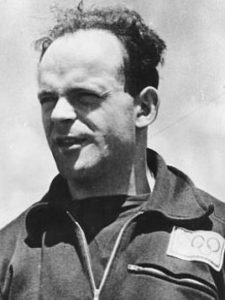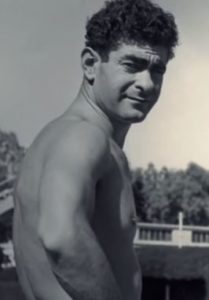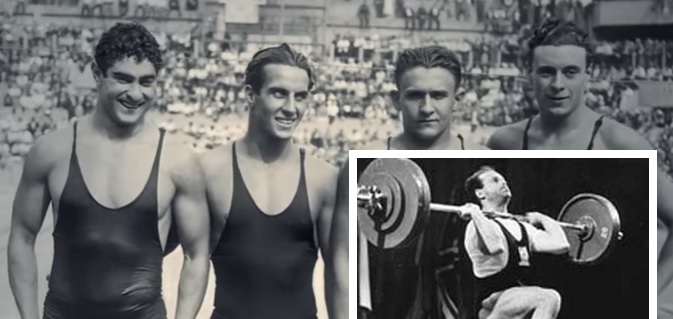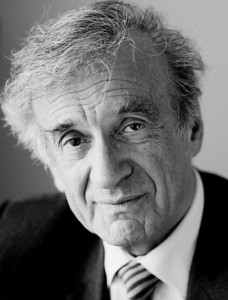The Holocaust Survivors Who Became Olympians

Helfgott at the 1966 Olympics in Melbourne, Australia
Ben Helfgott (b. 1929) was born in Poland and was only a child when the Nazis invaded his country. He was sent with his entire family to Buchenwald concentration camp. Everyone perished except for one sister. After the war, Helfgott was among some 750 Jewish kids under 16 taken to England as refugees. Now safe in England, Helfgott started a Jewish youth club and became a big fan of sports. He was soon introduced to weightlifting and wanted to take it up professionally. Being just 5 foot 4 inches tall, and weighing 154 pounds, Helfgott was told to find another sport. He persisted nonetheless, and at age 26, became England’s champion in the 11-stone division. He went on to win four more English and British Commonwealth weightlifting championships, and represented the UK at the 1956 Olympics in Australia. He returned in the 1960 Olympics in Rome as the coach of the UK weightlifting team. He also participated in the Maccabiah Games, earning weightlifting gold three times. After retiring from sport, Helfgott became a successful businessman. He used his wealth to start The ’45 Aid Society, generously supporting struggling Holocaust survivors. Helfgott was recently knighted by Queen Elizabeth. He is one of just two Holocaust survivors to become an Olympian.

Alfred Nakache
The other is Alfred Nakache (1915-1983), born in French Algeria to a traditional Sephardic family of eleven children. As a child, Nakache had a crippling fear of water. He made the decision to overcome his phobia, and soon immersed himself in swimming and water sports. He went on to become a five-time French swimming champion, and set five European and World Records. After a silver medal at the 1935 Maccabiah Games, Nakache made the French Olympic team and competed in the 1936 Berlin Olympics. When the Nazis invaded France, Nakache escaped to the Free Zone in the south of the country. He wasn’t safe from anti-Semitism, though. Banned from swimming in Toulouse, he moved to Marseilles. Several weeks after setting a new record in the 400 metre butterfly in 1943, he was arrested and deported to Auschwitz. Surviving the camp’s hellish conditions, Nakache returned to swimming, setting a new French record in 1946. He made the French Olympic team again and participated in the 1948 games in London. In 1993, Nakache was inducted into the International Jewish Sports Hall of Fame. He was the subject of the 2001 documentary Alfred Nakache, the Swimmer of Auschwitz. Today, many pools across France are named after him.
What’s the Difference Between Ashkenazim and Sephardim?
Words of the Week
According to the pain is the gain.
– Pirkei Avot 5:21

Nakache (far left) with the French relay team at the 1936 Berlin Olympics. Helfgott (inset) at a weightlifting competition.

